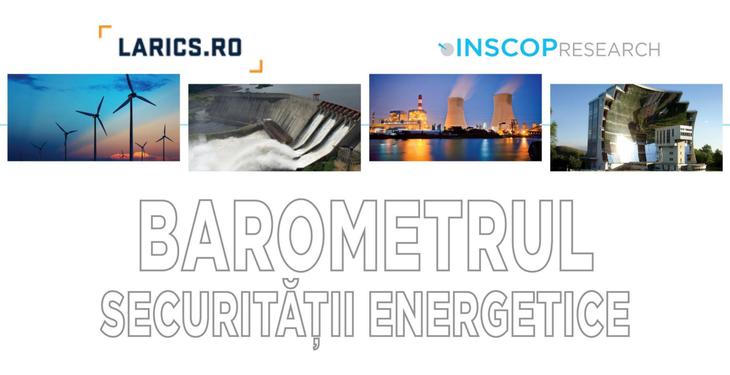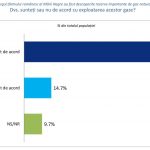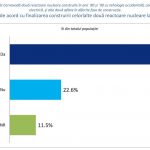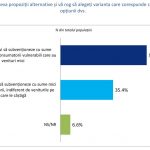-
83.6% of Romanians consider that climate change is real and it produces visible effects
-
75.6% of Romanians want the exploitation of natural gas resources from the Black Sea
-
65.9% of Romanians want the construction of new nuclear reactors in Cernavoda to be completed
-
58% of Romanians believe that the state should only subsidize vulnerable energy consumers with low incomes
The Institute of Political Science and International Relations “Ion I. C. Brătianu” of the Romanian Academy – ISPRI and the Laboratory of Analysis of the Information War and Strategic Communication – LARICS will launch on Friday the first “Energy Security Barometer” in Romania. The study is based on an extensive sociological research conducted at national level by INSCOP Research.
Răzvan Nicolescu, Central Europe leader for gas, oil and chemicals sector, partner of Deloitte and energy specialist Vasile Iuga will present their specialized assessments, along with representative of the Romanian Academy, Dan Dungaciu, the director of ISPRI and Remus Ioan Ștefureac, general manager at INSCOP Research.
The Energy Security Barometer is an annual tool aiming to measure perceptions, attitudes and visions related to energy policy analyzed in the broader picture of international relations.
The launch of the Barometer will allow for the presentation of complex topics such as the attitude of Romanians towards climate change, the consumption behavior for saving energy, the public perception towards different energy sources, the Romanians’ position on strategic projects in the field of natural gas exploitation (Black Sea), electricity generation (Cernavoda), population’ assessment of public policies in the field of energy (such as GEO 114), options for subsidizing energy consumers, the attitude of Romanians towards Euro-Atlantic allies, respectively towards other states in the region etc.
According to preliminary results, when asked whether climate change (global warming) is a real phenomenon, already visible on the entire planet, or a false one, invented for the purpose of commercially promoting technologies, 83.6% of Romanians consider climate change real and producing visible effects. When asked “What is the main reason why you consider energy saving important?”, 62% indicate the reduction of financial costs, 30.8% pollution reduction and 6.2% personal comfort.
In the context where important reserves of natural gas were discovered off the Romanian shore of the Black Sea, 75.6% of respondents agree with their exploitation, 14.7% disagree and 9.6% do not know or do not answer. 65.9% of the respondents agree with the completion of the construction of the two new nuclear reactors in Cernavoda, while 22.6% are against this idea and 11.5% gave non-answers.
58% of the respondents consider that the state should subsidize with adequate amounts only vulnerable consumers with low incomes, and 35.4% that the state should subsidize with small amounts all consumers, regardless of the income they earn.
The visual presentation of these preliminary research results can be downloaded HERE.
The energy security barometer was realized by Inscop Research at the command of LARICS, within the Institute of Political Sciences and International Relations “Ion I. C. Brătianu” of the Romanian Academy ISPRI. The data were collected during the period 4-12 September 2019 on a sample of 1,050 subjects representative for the population of Romania, uninstitutionalized, aged 18 and over 18 years. The maximum permissible error of the data is ± 3%, at a 95% confidence level on a multi-layered, probabilistic sample type. The method of collecting the data was the opinion poll based on a questionnaire applied by the interview operators at the respondents’ home. The sample was validated on the basis of official data of the National Institute of Statistics.



